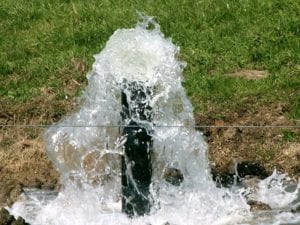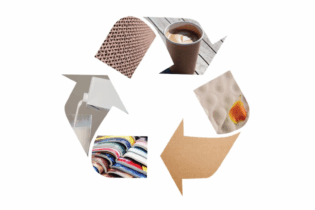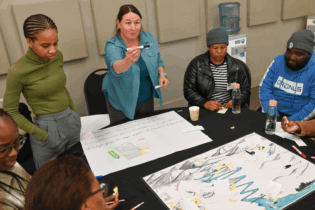As we enter Water Month in South Africa, Coca-Cola Beverages South Africa (CCBSA) is on the path to delivering millions of liters of groundwater a year to certain distressed communities around the country.
In its Coke Ville Groundwater Harvesting Project, CCBSA has already handed over one community-based groundwater project and five additional sites are planned for deployment in March, coinciding with National Water Week from the 15th to 22nd of March. These viable self-sustaining groundwater projects will be implemented in Limpopo, KwaZulu-Natal, and Eastern Cape, with a target to deliver over 60 million litres per year by the end of 2021. “South Africa is a water scarce country and continues to face major water challenges, the impacts of which are felt across all industries,” says Nozicelo Ngcobo, Public Affairs, Communication and Sustainability Director at CCBSA. “Water quality issues, aging infrastructure, increasing water scarcity, climate volatility, drought, and rising water pollution all pose significant risks, particularly to poorer, remote communities. Despite recent rains, there remains concerns about the ongoing drought in the Eastern Cape, parts of Limpopo and the North West. Water is a human right, and it requires collaboration between stakeholders in the private and public sector, supported by the effectiveness of water policies across all government levels,” she says. In March 2021, CCBSA plans to launch modern off-grid, solar-powered groundwater harvesting and treatment projects in the Mzinyathi area in eThekwini Municipality, KwaZulu-Natal, Bholotwa and Daberha villages in the Ngcobo town of the Chris Hani District Municipality, Eastern Cape and Makhushaneng in the Capricorn District, Limpopo.In March 2020, CCBSA successfully unveiled fully operational Coke Ville in Tshikota Village, Vhembe Municipality, Limpopo Province. Further projects are planned for Butterworth in Amathole District and Polokwane in the Capricorn District and these will be launched later in the year.
South Africa still relies largely on surface water for its water needs, a resource that is overstretched and prone to pollution, drought, and other challenges. The country is expected to reach physical water scarcity by 2025, accelerating to 17% water scarcity by 2030, based on current usage. Government’s long-term water resource plan currently underway involves moving the country to alternative sources, including reusing and recycling grey water, rainwater harvesting and groundwater. CCBSA is poised to work with government to deliver on this mandate. Of the available resources, groundwater has the best potential to support a fast-growing population. It is estimated that South Africa has the same amount of groundwater as surface water. While groundwater use has increased by an average of 0,6% per year during the past four years, only about 40% (or 3 billion cubic metres per year) of available groundwater is used. “The fact that groundwater isn’t exposed to the elements means it can be safely used for general purposes, as well as potable uses such as cleaning, taps, toilets, showers and gardens,” Ngcobo says. “Typically, groundwater is naturally clean and safe for consumption because the overlying soil and rock acts as a filter. The resources can also be developed fairly quickly and cheaply at a local level, reducing the strain that high water demand places on surface water resources and aging infrastructure.”






